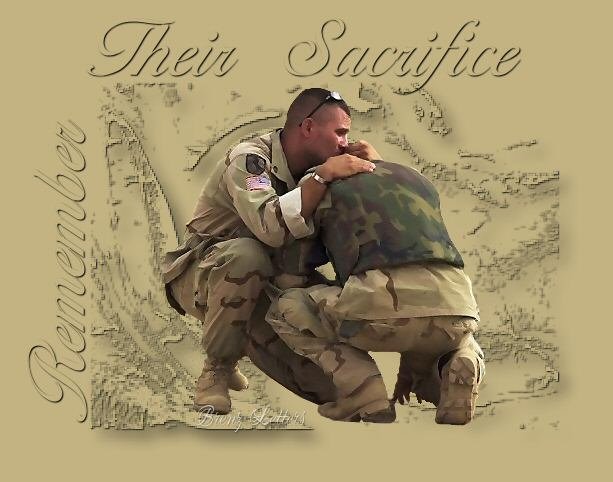Cross Posted from
Wake up AmericaThe report itself
can be found here and there is a little something for everyone, on both sides of this issue.
The handy dandy graph below shows 8 areas of satisfactory progress, 8 areas of unsatisfactory progress, mixed on 2 areas and 2 areas which it says it is too early to determine.
 (CLICK IMAGE TO ENLARGE)
(CLICK IMAGE TO ENLARGE)Considering the full amount of troops in the so called "surge" arrived just 3 weeks ago, I am surprised any areas were able to be determined yet, so here we go.
The areas that are listed as satisfactory are the military ones and the areas that are listed as unsatisfactory are the political ones.
Not to gloat here, but we at Wake up America has consistently maintained that the political benchmarks could not be met until the military benchmarks (reducing levels of sectarian killings) have given the politicians some breathing room to be able to make some headway politically.
This appears to be what is happening.
In advance of the release of the initial benchmark report,
ABC ran an article in which, in their words, not mine, they said that although Anbar Province, last year, was considered the most dangerous Province in Iraq, that since General Petraeus has been using counterinsurgency tactics, there has been a "near miraculous turnaround in Anbar Province", which is representative of many of the Provinces since Petraeus took over.
Their exact quote:
This report notes a decline in attacks on civilians and a near miraculous turnaround in Anbar Province, which, just last year, was considered the most dangerous in Iraq.
As
Captain's Quarters puts it:
The successes are obvious. Chief among them is the reversal of fortunes in Anbar, which many had considered so intractable that it should have just been abandoned. Now the province has been rid of terrorists and life has begun to return to normal. The move to Diyala and Baqubah appear to be having the same effect there. The report stresses that the full complement of surge forces has only been in Iraq for three weeks, and that these early results show the potential of wider success against terrorists -- and that they have even garnered support from native insurgents eager to drive out foreigners.
Now while I fully agree with
House Minority John Boehner's assessment that the some members of the Senate's GOP are "wimps", it might not be exactly helpful to the serious discussions and debates.
I do have to thank him for the chuckles though.
Rep. Heather Wilson (R-N.M.) called for comity yesterday during a meeting of the Republican Conference after House Minority Leader John Boehner (R-Ohio) referred to Senate GOP colleagues favoring a change of course in Iraq as “wimps.”
Even as a few GOP Senators can be considered "wobbly" it evens out when you consider the few centrist Democrats, or Blue Dog Democrats that do not agree with tying the commanders hands on the ground in Iraq.
But another Blue Dog, Rep. John Barrow (D-Ga.), remains opposed to the leadership’s approach on Iraq.
“The idea of timelines to incentivize the Iraqi government is a good idea, but it shouldn’t be written into law,” Barrow said. “Commanders on the ground need to have flexibility.”
Rep. Jim Marshall (D-Ga.) also said he is “likely” to vote against the leadership’s Iraq bill.
Those Blue Dog Democrats understand that although people are tired of hearing about Iraq,
the consequences of a premature withdrawal would be disastrous.
From Wapo: (linked above)
The last time I remember Ambassador Ryan Crocker warning about a possible bloodbath, it was in September 1982 as the Sabra-Shatila massacre was taking place in Beirut. So when Crocker tells the New York Times that a rapid U.S. withdrawal from Iraq could produce a human tragedy on a far larger scale, people should take notice. He has seen it happen before.
Iraq's foreign minister, Hoshyar Zebari, described the dangers starkly on Monday in explaining what might happen if the United States withdraws its troops too quickly from Iraq: "The dangers could be a civil war, dividing the country, regional wars and the collapse of the state."
Those are the stakes as the Senate debates the military authorization bill this week. The daily death toll measures the cost America and the Iraqis already are paying, but Crocker and Zebari are right in warning that a sudden U.S. withdrawal could be even more costly: The violence that is destroying Iraq could spread throughout the region -- an inferno stretching across Lebanon, the Palestinian territories, Jordan, Syria, and even Egypt and Saudi Arabia -- with devastating consequences for global security.
MY PREDICTION:
Either way,
as we explained yesterday, the Democratically controlled Congress and Senate will do exactly as they did with the emergency supplemental bill, and pass legislation with some sort of timelines, which the President will veto, again, and which the Dems do not have a two thirds majority to override the Presidents veto.
I didn't name that post Deja Vu Anyone for nothing!
HEY, at least Pelosi and Baghdad Reid can tell their supporters "we tried, its those damn Republicans and a few of our own Blue Dogs"...heh
Wizbang points out one specific section of the benchmark report:
Update:
One more quote from the report:
The increasing concern among Iraqi political leaders that the United States may not have a long-term commitment to Iraq has also served in recent months to reinforce hedging behaviors and made the hardest political bargains even more difficult to close.
The more the Democrats talk about quick withdrawal, the more the Iraqi political hardliners will hold out for a better deal, and the less likely compromise can be achieved, and benchmarks met. It's the Democratic strategy, and I have to say it seems to be working just fine for them. Heaven help the Iraqi people when Iran becomes the power broker in Iraq between Hezbolla and Al Qeada. Wouldn't be too good for the U.S. either.
I wonder where those Iraqi's got the idea that America isn't committed to helping them? (SNORT)
That one can be place squarely on the Democrats shoulders, without a doubt.
This initial report is just that, a preliminary until the actual report is due in September.
Our military, headed by General Petraeus has done an astoundingly wonderful job as they will continue to do to give the Iraqi politicians a chance to get those political benchmarks achieved.
Between now and September, that is what they must do.
They do have, at least, until September because
President Bush will not consider a troop pullout without giving General Petraeus the time he was promised to get the mission done, and he will veto any attempt from Congress and the Senate to legislate a war, as he should.
I am not blaming the Iraqi politicians, lets be clear on this, it took America far longer during and after the American Civil War, to come to any political settlements, but with the atmosphere in Washington being what it is, we are going to have to see the Iraqi politicians do a better job that we here at home
can or
did.
It is what it is.
In the meantime,
Don Surber doesn't think it is time to remove
American Troops from
U.S. Soil yet. (Gotta love this guy)
Wapo brings us some remarks from the President:
Bush, in a White House news conference, said that enough progress has been made to justify release of U.S. funds, which Congress made contingent on a positive assessment. He asked lawmakers to delay an effort to try to force an early troop reduction until a second report, due in September, is delivered.
"The bottom line is that this is a preliminary report and it comes less than a month after the final forces have arrived in Iraq," Bush said. By September, "we hope to see further improvement in the positive areas and further improvement in the negative areas," and will "be in a better position to adjust where we need to make any adjustments" in the current strategy.
"I know some in Washington would like us to start leaving Iraq now," Bush said, but withdrawal "would mean surrendering the future of Iraq to al-Qaeda. It means risking mass killings on a horrific scale" and would "allow terrorists to establish a safe haven." He repeated his frequent argument, increasingly rejected by the public and Congress, that the Iraq war is part of a "broader struggle" against al-Qaeda and Iran.
Michael P.F. van der Galiën, being from Europe, not America, gives us a birdseye view of exactly what would happen to America's "image" should the obvious outcome of a premature withdrawal comes to bear, in his post called "Reality Check":
So - I thought, let me talk with some Dutch people about this. I asked 8 people: only one of them supported the war in Iraq, the other opposed it from the get-go. I asked them what they thought would happen in Iraq when the US withdraws. The unanimous answer: genocide. Who, I asked, would you blame? America or Iraq? The answer: America. So, I also asked them what they thought Arabs, Muslims and everyone else would think of it. The, again, unanimous answer: everybody will blame America, and it will greatly hurt America’s image.
Now - eight people is not exactly a representative poll, but I want to make something clear to all of you: I strongly believe that this is how most people will look at it. Mass genocide will be blamed on the US. Why? If the US would not have attacked, Iraq would still be stable. Yes, Saddam would still be in power, but most people do not look at that (besides, they will also argue that life under Saddam was probably not worse that it is today) - most people simply look at the result.
Now, many Americans argue “we have to bring our troops home: they should not die in a far away country, if we cannot win / bring stability any time soon.” To Americans, this sounds logical. To 5.5 billion other people, this sounds extremely egoistical. The other citizens of the world say “3500?? are you kidding me? Tens of thousands, perhaps even hundreds of thousands of Iraqis have died, and if you withdraw prematurely, hundreds of thousands, possibly millions more will die, and you complain about 3500??? You started this war in the first place.”
I realize that the way I choose to word this might anger quite some Americans and I thought about bringing it less bluntly, but I am not a politician: I am a blogger. And I am simply trying to explain something important to you all (the majority of whom are Americans). To those living in the other countries I ask this: don’t you agree with this post? If you look around and ask other people, isn’t what I wrote the answer the far majority gives? Yes it is harsh, but 300,000 Iraqis killed (quite a random ‘in between’ number) is quite harsh as well.
Well said, from one that is outside of America, looking in.
He also has a
second reality check and a
third.
I am sure I will have more to say on the initial benchmark report after I have done more than skimmed through it for this post.
In the meantime, others are weighing in:
Amy Proctor from
Bottom Line Up Front shows General Petraeus praising the Iraqi's.
Debbie Hamilton from
Right Truth tells us why the Democrats fear any and all success in Iraq.
Take Our Country Back shows us the report on Iraq's Northern villages.
Michelle Malkin and
Hot Air both have analysis and rolling updates.
Gateway Pundit has visuals that make his points nicely.
Sweetness and Light shows us how the media lied, once again.
Wapo has an editorial that has to be read, in which they show that both sides of the aisle have their own "wishful thinking".
IT SEEMS like just weeks ago, because it was, that Congress approved funding for the war in Iraq and instructed Gen. David H. Petraeus to report back on the war's progress in September. Now, for reasons having more to do with American politics than with Iraqi reality, September isn't soon enough.
Thats how it started, go read the rest.
Political Punch shows us Baghdad Reid's refusal to answer a very simple question, even after it was asked THREE TIMES.
Austin Bay shows us 7 likely scenarios if the U.S should make a quick exit from Iraq.
All of them have excellent analysis, so make sure you stop in and read them.
Bottom Line, we are halfway to the September date for the actual full report and half of the benchmarks have been satisfactory and half have not.Sounds about right.
(One additional thought here: I do believe the
Iraqi's are suffering far more from American Politics than they are their own. Thats sad.) It seems the Iraqi's agree with me.
[UPDATE] President Bush's press conference about the Report
can be found here.
First Money Quote from the press conference:
When we start drawing down our forces in Iraq it will be because our military commanders say the conditions on the ground are right, not because pollsters say it will be good politics. The strategy I announced in January is designed to seize the initiative and create those conditions. It's aimed at helping the Iraqis strengthen their government so that it can function even amid violence. It seeks to open space for Iraq's political leaders to advance the difficult process of national reconciliation, which is essential to lasting security and stability. It is focused on applying sustained military pressure to rout out terrorist networks in Baghdad and surrounding areas. It is committed to using diplomacy to strengthen regional and international support for Iraq's democratic government.
Another point I have made from the start of this blog, polls do not and should not run wars, our military does that.
[Update #2] McCain takes the New York Times to the woodshed and spanks them.
MUST see the short video.
Sphere: Related Content













































